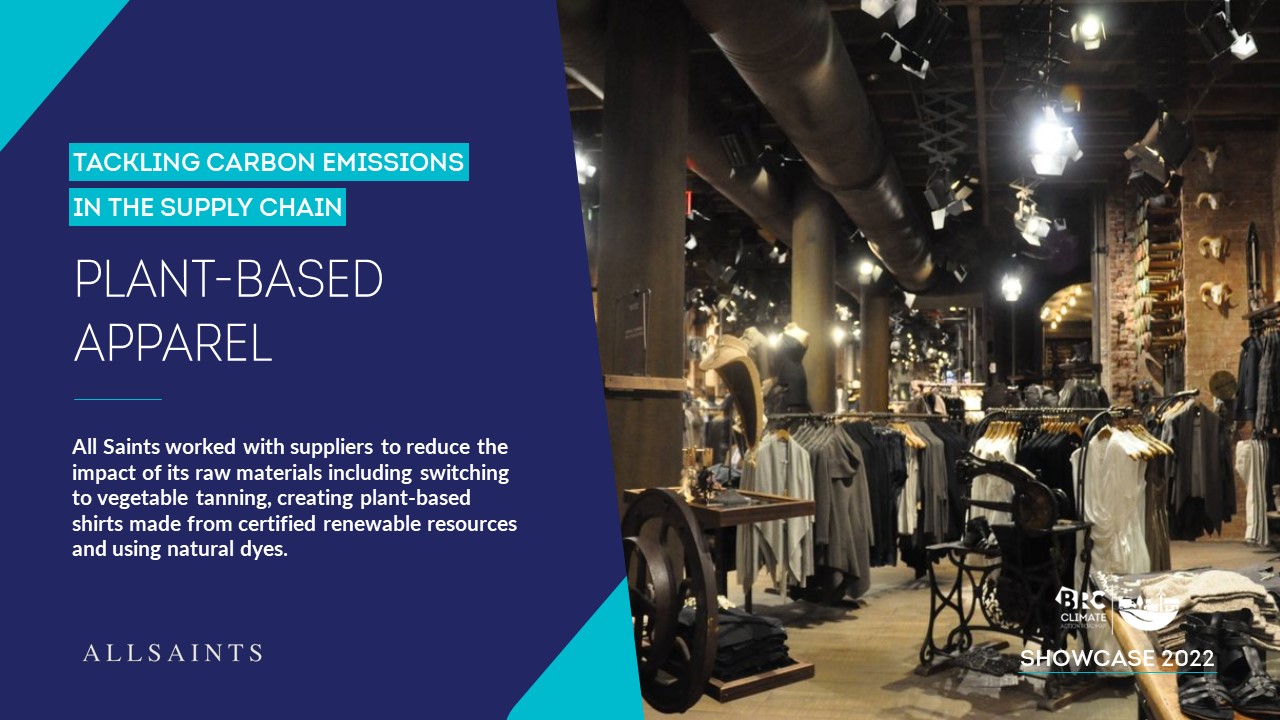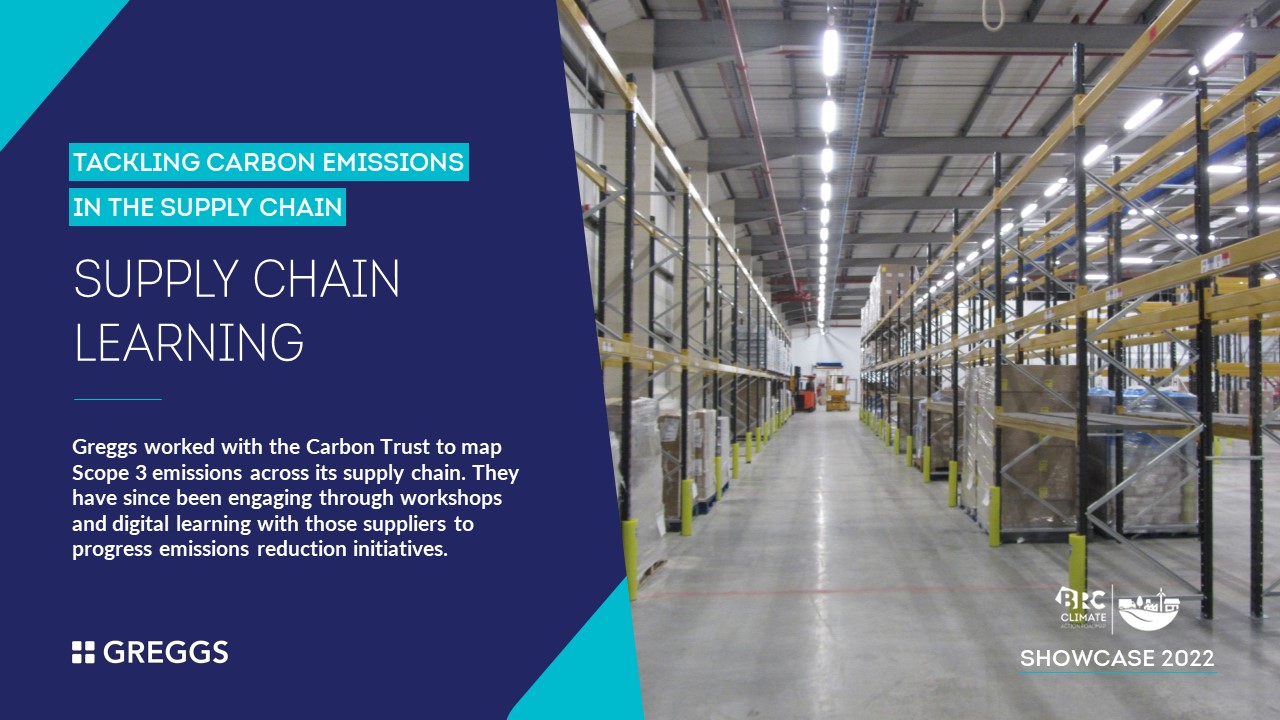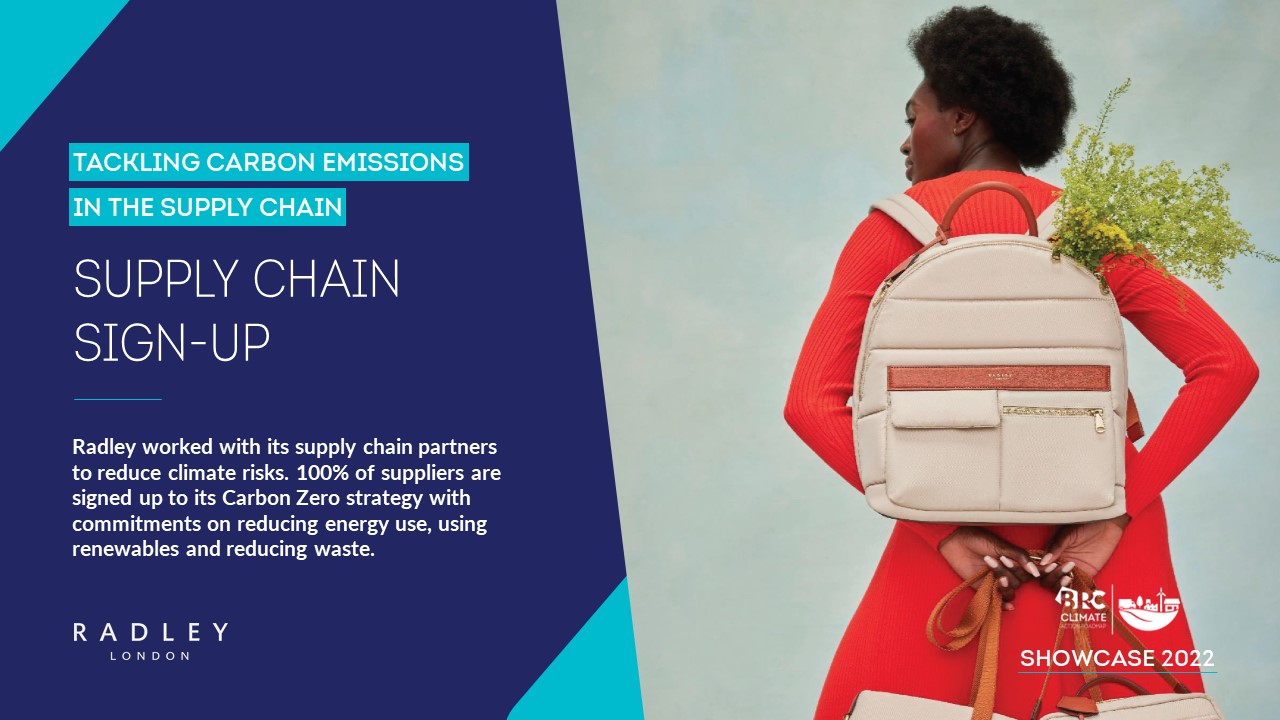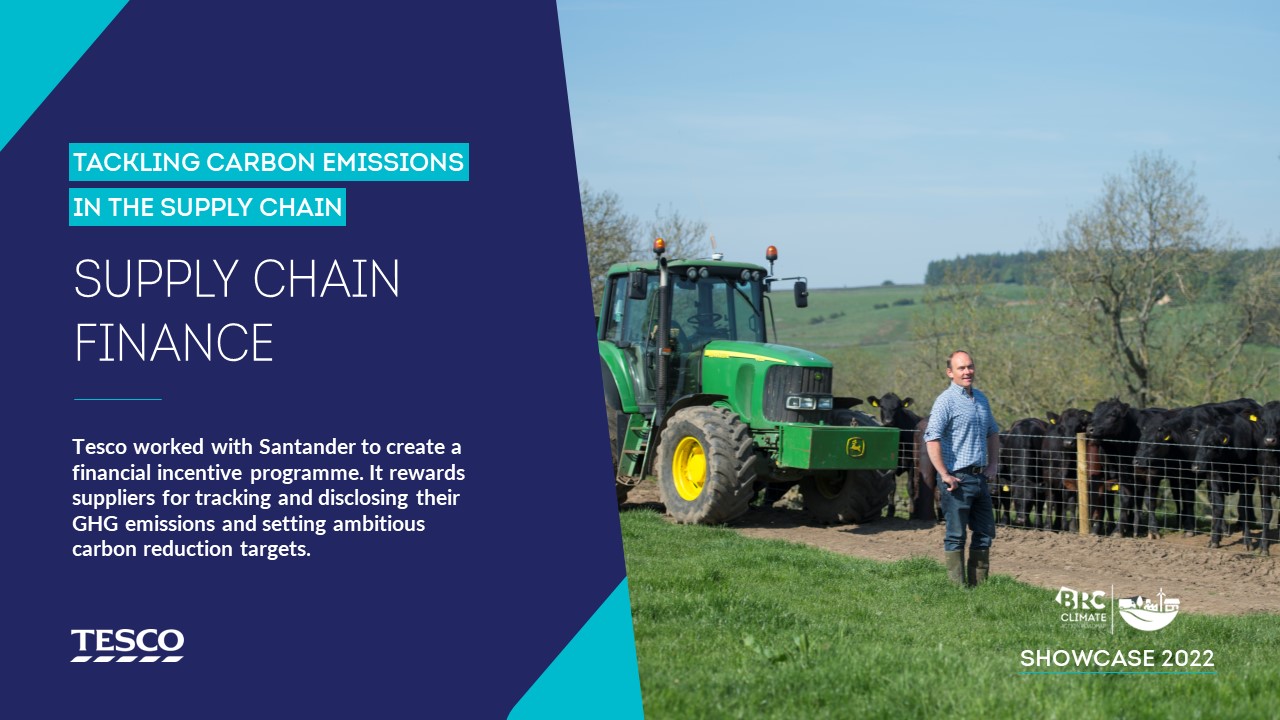Climate Action Roadmap Showcase | Reducing emissions in transport and logistics | Reducing waste
Driving towards net zero properties | Changing consumer behaviour
Tackling Carbon Emissions in the Supply Chain
Scope 3 emissions are the biggest source of carbon emissions resulting from household consumption. Climate Action Roadmap signatories have pledged to reach Net Zero in all their activities, including in the supply chain by 2040. This category is about retailers finding effective ways to reduce their supply chain emissions and/or work with suppliers to do so. For example, finding ways to measure and assess different suppliers based on how green they are, supporting suppliers to lower their own carbon emissions, or cutting carbon emissions within the manufacturing process.
All Saints – AllSaints: Conscious Commitment

LEARN MORE
AllSaints has a small vendor base of only 47 suppliers with whom we have nurtured long-term relationships securing fantastic collaboration and support for our brand from them through the pandemic. Our approach to reducing emissions in the supply chain is to approach the issue as an absolute partnership, with innovations suggested both by us as a brand and also from our suppliers who are often true experts in their production specialisms and leading-edge sustainability and GHG emission reduction.
Our initiative “AllSaints: A Conscious Commitment”, launched in 2020, is a set of incremental changes for right now, and larger goals for the future. Our sustainability efforts are always growing. We recognise we have a responsibility towards our planet, and the people involved in making our clothes, so we’ve developed a new uniform using recycled yarns, responsible wools, vegetable-tanned leathers and innovative water saving techniques.
Greggs – Improving the supplier engagement process

LEARN MORE
As part of our Net Zero plan, in 2021 we completed the mapping and measurement of our Scope 3 emission sources. We worked in partnership with the Carbon Trust and representatives from functions and teams across Greggs to ensure our mapping and measurement was robust and included all elements of our value chain. The results from the mapping and measurement showed that our Scope 3 emissions are >90% of our overall footprint with purchased goods and services (product) resulting in 68% of our overall footprint. Following a review of the results with our senior team it was agreed that a key element of our reduction plan would need to include supplier engagement.
To drive collaboration and supplier involvement, our Sustainability and Procurement teams, alongside members from our Exec team, agreed a supplier engagement process that included an agreed set of requests for suppliers delivered, in the first instance, through supplier engagement workshops.
The first workshop was held in March 2022 and involved suppliers from our highest emission source materials. A second workshop is planned for September 2022 with attendance from suppliers of the next highest emission source materials.
Radley – Effectively monitoring the supply chain

LEARN MORE
As part of our ongoing commitment to the future of our planet, we work together with the entire supply chain – including the suppliers of our suppliers. We love making the most beautiful handbags and we do this in the most responsible way for our planet. With the ESG (Environmental, Social and Governance) strategy we have in place, we constantly monitor how we can make positive changes in our business and encourage change elsewhere. Ethically, environmentally and socially. This affects how we design, source, manufacture and sell our products.
We audit our entire supply chain to ensure they are compliant with our exacting standards. 100% are signed up to Carbon Zero and Brand ESG strategies. By forecasting accurately, we can manage manufacturing efficiencies to support our Production Partners in keeping to these strategies. This is measured with factors such as efficient energy use, renewable energy sources, managing waste responsibly, and disclosing information on all environmental policies.
We’re forecasting further ahead than ever before. This has several benefits, including time to freight by sea rather than air, better human resource management and a happier workforce, better product flow and manufacturing consistency, and less risk of energy surges and blackouts.
As well as streamlining production, many of our Partners have followed our lead in adopting more carbon-reducing features throughout their factories, such as LED lighting and solar panels. We’re also promoting responsible packaging usage from our Partners, having achieved 100% recycled materials for all outgoing customer orders.
Tesco – The Tesco-Santander Sustainability-linked Supply Chain Finance Programme

LEARN MORE
Understanding the impact of the food industry in climate change and global biodiversity loss, Tesco has committed to become net zero across all scopes by 2050. This target, which is currently being reviewed by the Science-based target initiative, is in alignment with a 1.5C pathway. It represents our most ambitious target to date, as it entails not only decarbonising our operational emissions but also the indirect emissions upstream in our sourcing and downstream in customer use of products, which together account for more than 90% of our overall footprint. As such, Tesco has set in motion an ambitious supplier engagement programme which provides the right incentives to deliver the expected GHG emission reductions, particularly ahead of our interim target in 2032.
One important piece of our supplier engagement programme is the sustainability-linked supply chain finance project we currently co-lead with Santander, through their UK office. The programme hopes to incentivise suppliers to track their GHG emissions, disclose their group-level emissions data, monitor their year-on-year emissions reductions, and set climate commitments (ideally towards net zero). The main mechanism the programme uses is reverse factoring, which means suppliers get faster payment rates for their invoices with Tesco, ultimately working as an additional, flexible, and cheaper funding solution for suppliers. The speed of payment and the general conditions of the factoring process depend on each suppliers’ quality of climate disclosures, with three different tiers – bronze, silver, and gold – all above Tesco’s code of conduct and due diligence minimum threshold of environmental performance. Launched in 2021, the supply chain finance programme concluded its first successful year with more than £280 million financed invoices across our Tier 1 suppliers, and now it’s ready to start its second year with more ambitious supplier requirements and a significant upscale in the level of supply chain coverage.